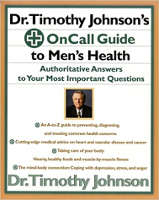
Image by Omar Medina Films
(Editor's Note: While this article is written for men, much of the information and insights pertain to women as well.)
There may be no more important component of personal happiness than your interpersonal relationships. Think about it: When things are going well with your spouse or significant other, your friends, your associates at work, or your family, you feel robust, cheerful, positive, content.
Those feelings of well-being, while worthy of recognition in their own right, also are valuable for another reason: They have a direct impact on your physical health, boosting your ability to ward off illnesses and keep your body functioning at its peak.
Mind-Body Connection Research
This so-called mind-body connection has been increasingly borne out in medical research since the early 1970s. In fact, a whole new field of research known as psychoneuroimmunology (PNI) has sprung up to explore the many ways in which our thoughts and emotions affect our physical well-being.
What scientists now believe is that your emotions influence the activity of certain hormones and brain chemicals, called neuropeptides. These chemicals carry on an internal dialogue in your body, transmitting messages about your mental state and affecting everything from your heart rate to your immune response when your body is invaded by a cold virus.
These findings have potentially profound implications on a practical level. For instance, in one particularly telling study, published in the Journal of the American Medical Association, researchers found that the death rate of older Jewish men declines right before Passover, a Jewish holiday that carries particular significance for elderly men, who typically lead the ritual celebration. After the holiday, there is a spike in deaths before things settle back to normal. In other words, the excitement and anticipation of sharing a joyful occasion with their loved ones actually seems to help some men postpone their own deaths!
Friendship Decreases Depression
Friendship also has been shown to decrease the incidence of depression in recent heart attack survivors, encourage AIDS patients to stick to complicated medication schedules, increase functioning in people with schizophrenia, help college students maintain a regular exercise regimen, and decrease the risk of heart disease. In our never-ending search for medical magic bullets -- supplements that will prevent cancer, herbs that will ward off illness -- it appears we could do a lot worse than to simply make a new friend.
What does all this mean for men today? The findings about the impact of personal relationships on health are both good and bad news for most of us. The bad news is this: Troubled relationships can wreak havoc on your emotional well-being and take a toll on your health. And, thanks to a complex interplay of upbringing, socialization, individual temperament, and hormones, men traditionally have had greater difficulty than women in navigating the often-dicey territory of interpersonal relationships.
Men and Best Friends
In her interviews with hundreds of men in the early 1980s, Shere Hite found that many men have never had a best friend and that the friendships most men do have tend to be superficial -- they discuss things like business, sports, and politics rather than deeply emotional or personal issues. Although these more shallow relationships undoubtedly provide a certain level of emotional comfort, they skim the surface of the potential benefits that exist within the context of friendship, among them the remarkable health benefits friendship can provide.
Times are changing, however, and men today are becoming more open to the idea of sharing their deeper thoughts and feelings with other people. Meanwhile, a whole new generation of men is being raised by fathers who are more emotionally honest and available than their predecessors. Interpersonal relationships -- between men and women, men and men, men and coworkers, and fathers and children -- will undoubtedly benefit from this new era of openness, and so will our health.
Until then, why not do what you can to get the most out of your relationships? Here are some of the health-related implications of the everyday interactions most of us take for granted.
The Working Man
Men and work. The two seem almost inextricably linked. It's likely that from the earliest days of humankind, the males of our species have been genetically groomed to toil. The first men spent days in the wild, stalking animals to provide food for their clan or tribe. Today we work for money, which in turn pays for everything we need in terms of food, shelter, clothing, and beyond.
Although the days of hunting wild beasts are largely relegated to prehistoric times, the hunter instinct is alive and well in most contemporary places of business. It's civilized, to be sure, by ties and business suits, executive suites and cell phones, but it's in evidence, nonetheless. Consider the intense competition for attractive jobs, the cutthroat vying for coveted promotions, and the widespread fear of layoffs when profit margins disappear.
Work is a critical element to our health and well-being for a simple reason: We spend so much time there. Despite advances in technology, employees are working longer hours today than 25 years ago. The total time men spend at work has increased 2.8 hours a week - from 47.1 to 49.9 - since 1977, according to research conducted by the Families and Work Institute, a nonprofit organization that explores the changing nature of work and family life.
Those extra hours, coupled with the increasing demands of a global economy, often translate into decreased well-being. The Institute found that one-quarter of people felt nervous or stressed-out very often and 13 percent had a tough time coping with the demands of everyday life. That's not good news, considering the fact that job strain has been shown to increase your risk of high blood pressure, cardiovascular disease, back pain, psychological disorders, and workplace injuries.
Making Room for Wellness
How can you stay healthy in this demanding, fast-paced atmosphere? First, the way you feel about your work is key. Research has shown that stress doesn't take such a deadly toll on people whose job satisfaction is high -- in other words, if you enjoy what you're doing, your body actually handles stress more effectively.
Fortunately, slightly more than half of men say they're "very satisfied" with their jobs, according to a Louis Harris poll conducted in the year 2000. Another 37 percent are "somewhat satisfied," and 9 percent aren't at all satisfied.
Research has shown that three factors contribute to increased job satisfaction:
1) control over your work,
2) the opportunity to use your talents and skills, and
3) being in an environment in which your work is recognized and appreciated.
According to a recent study conducted at the Family Studies Center at Brigham Young University, people with more job flexibility -- who can work at home, for instance, or have some control over the hours they work -- are actually much more productive and less stressed out than those with more rigid schedules. Everyone has moments of frustration and dissatisfaction at work, but if you feel stuck in an unsatisfying, dead-end job that offers little in the way of personal gratification, you have yet another reason to start looking for greener pastures: your health.
Supportive Coworkers and Bosses
Another factor that will help you cope with increasing job demands is supportive coworkers and bosses. Although the Families and Work Institute found that employees in smaller companies say their workplaces are more supportive than those within larger corporations, the group also found that a majority of workers feel their immediate supervisors are quite supportive and most employees have positive relationships with their colleagues. Developing good working relationships with the people around you can help you cope with the daily demands and hassles of any job.
Finally, you can usually handle work stress more effectively if you have a physical outlet for your frustrations. Although our leisure time is feeling the squeeze of increasing work demands -- a Louis Harris poll found that Americans' leisure time has decreased by 37 percent in the past 30 years! -- it's important to take at least a half hour every day to do something overtly physical.
Start a company softball team. Join a nearby gym that you can visit during your lunch hour. Meet a colleague several times a week for a pre-work jog. Try a number of tactics to squeeze in physical activity to find the one that works for you and that you can stick with for the long haul.
Differences Between Men and Women
The American public has been bombarded by books that point out the stark differences between men and women. We've been told that the two genders are from different planets, we don't speak the same language, we have different skills, even our brains are different!
It doesn't exactly foster confidence in men who are trying to start a relationship, much less in those who are engaged in the hard work of keeping a long-term relationship alive.
Benefits and Stresses of Relationships
Long-term commitment is hard work. Although most studies have found a 40 to 50 percent divorce rate, researchers at the University of Michigan found that first marriages today stand a 67 percent chance of failing over a 40-year period! Ironically, marriage is particularly dicey in the beginning, perhaps because people are still adjusting to their new circumstances. In any case, studies show that fully half of all divorces occur in the first seven years of marriage. Daunting statistics, to be sure.
Even so, there are lots of good reasons to stay married, some of which are truly surprising. Researchers at the University of Michigan predict that people who stay married live on average four years longer than those who don't.
Experts speculate that marriage (or a committed partnership) protects your health on both a macro level -- by offering lifelong support and companionship -- and on a micro level, by providing an ally who will pester you into being conscientious about everyday health practices, like exercising regularly, eating right, seeing a doctor for routine checkups, and taking your medicine when you're supposed to.
There also appears to be something going on in the bodies of happily married, people that keeps them healthier. After analyzing 100,000 cancer deaths from 1960 to 1991, researchers in Norway found that men who had never married and divorced men are 15 percent more likely to die of cancer than married men. Although no one knows the exact mechanisms at work behind this phenomenon, researchers are amassing more and more clues.
Good Marriages and Strong Immune Systems
John Gottman, Ph.D., cofounder and codirector of the Seattle Marital and Family Institute, has conducted years of research on married couples and has found preliminary evidence showing that people in good marriages actually have stronger immune system responses to foreign invaders than their less happy counterparts. Divorce, on the other hand, depresses the immune system, making you more susceptible to everyday bugs and perhaps even serious diseases like cancer.
Even the short-term stress of a nasty argument can leave your immune system sluggish. When researchers at Ohio State University College of Medicine analyzed the physiological responses of 90 happily married couples during and after a discussion of marital problems, they found that the spouses who exhibited more negative or hostile behavior had greater increases in blood pressure and decreases in their immune system functioning over the subsequent 24 hours than those who remained more positive or supportive.
Psychological well-being also is affected by marriage. Austrian researchers recently analyzed the admission rates at the University of Vienna Department of Psychiatry and found that unmarried people are twice as likely to suffer from depression as married people. Perhaps not surprisingly, the lowest rates of depression in the study were found in employed married men. Likewise, researchers at the University of California at Riverside recently found that divorced men are twice as likely to commit suicide as married men, even though marriage doesn't confer any such protective benefits on women.
So how do you keep your relationship on an even keel? Carrying on a successful relationship requires a fairly high level of diligence and hard work, not just on special occasions, like birthdays and anniversaries, but every day, during ordinary interactions. Although there's no clear roadmap to harmony in couplehood, experts in the field have found indications of what separates a good relationship from a rocky one:
Be emotionally attuned to your partner.
Dr. Gottman, one of the foremost researchers in the field, has found that one of the secrets of a successful relationship is paying attention to your partner's minor bids for attention and affection, like an affectionate caress on the arm, a significant look, a smile, or a question or comment. If your partner is reading the newspaper, for example, and says, "I can't believe it! The local YMCA is closing," it may seem like a throwaway comment. You could ignore it or respond to it depending on your mood and other distractions.
But Dr. Gottman's research has shown that people in good marriages are more likely to follow up on these everyday observations from their partners. In fact, his studies have shown that husbands who eventually were divorced ignored such bids from their wives 82 percent of the time, compared to 19 percent for men in stable marriages. In other words, paying attention to the little things and cueing into your partner's emotional needs -- on a practical, everyday level -- is one way to give your relationships staying power.
Argue the right way.
Research has shown that couples who resolve marital conflict by using a collaborative style -- expressing their opinions, then coming to some sort of a mutually acceptable conclusion -- have much higher marital satisfaction than those who are competitive, trying to "win" an argument rather than come up with a solution.
Maintain a friendship with your partner.
Studies of long-term couples have shown that the foundation of the relationship is friendship. Genuinely liking and enjoying your partner's company helps you ride out the tough times, when your relationship is tested. To keep that basic connection strong, it can help to be diligent about making time for each other, whether it's a half-hour walk together at the end of each day or a special dinner alone once a week.
Accept the fact that there will be hard times.
Successful, long-term couples don't have a utopian view of relationships. They know that there will be difficulties, so they don't panic when they enter a tough phase. Instead, they tackle the issues and look for positive solutions.
In a study of 50 happily married couples, Judith Wallerstein, Ph.D., found that the couples who recognized the need to adapt and negotiate the relationship were better able to handle difficult times.
Keep your sex life fresh and lively.
Studies have found that one of the main reasons men in committed relationships stray is boredom (women, on the other hand, are more likely to commit adultery for emotional reasons), and infidelity is a difficult obstacle for even the best marriages to surmount. With a little extra work and innovation in the bedroom, you can maintain a sense of excitement with your partner, without violating the trust the two of you share.
To create an environment in which your sex life can grow and change, it helps to be open and responsive to your partner's ideas and needs. In addition, being affectionate throughout the day -- not just in the bedroom -- can enhance the sensuality of your relationship.
©2002. All Rights Reserved.
Reprinted with permission of the publisher,
Hyperion. www.HyperionBooks.com
Article Source:
Dr. Timothy Johnson's On Call Guide To Men's Health: Authoritative Answers to Your Most Important Questions
by Dr. Timothy Johnson.
 From Dr. Timothy Johnson, respected health authority and medical correspondent for ABC News, comes a comprehensive, accessible guide to men's wellness that no man should be without.
From Dr. Timothy Johnson, respected health authority and medical correspondent for ABC News, comes a comprehensive, accessible guide to men's wellness that no man should be without.
Dr. Johnson is on call to answer your top questions on men's health. Drawing on cutting-edge medical techniques, leading medical experts, and first-hand accounts, he provides men of all ages with guidelines for staying healthy, for developing good rel
About the Author
 Dr. Timothy Johnson is an American academic, pastor, physician, television journalist, and writer who, as "Dr. Tim Johnson", is known to television viewers as the longtime Chief Medical Correspondent for ABC News on the ABC television network.
Dr. Timothy Johnson is an American academic, pastor, physician, television journalist, and writer who, as "Dr. Tim Johnson", is known to television viewers as the longtime Chief Medical Correspondent for ABC News on the ABC television network.
For many years he has been a member of the faculty of the Harvard Medical School at Harvard University and on the staff of Massachusetts General Hospital, a teaching hospital of the Harvard Medical School and a biomedical research facility in Boston, Massachusetts.


























